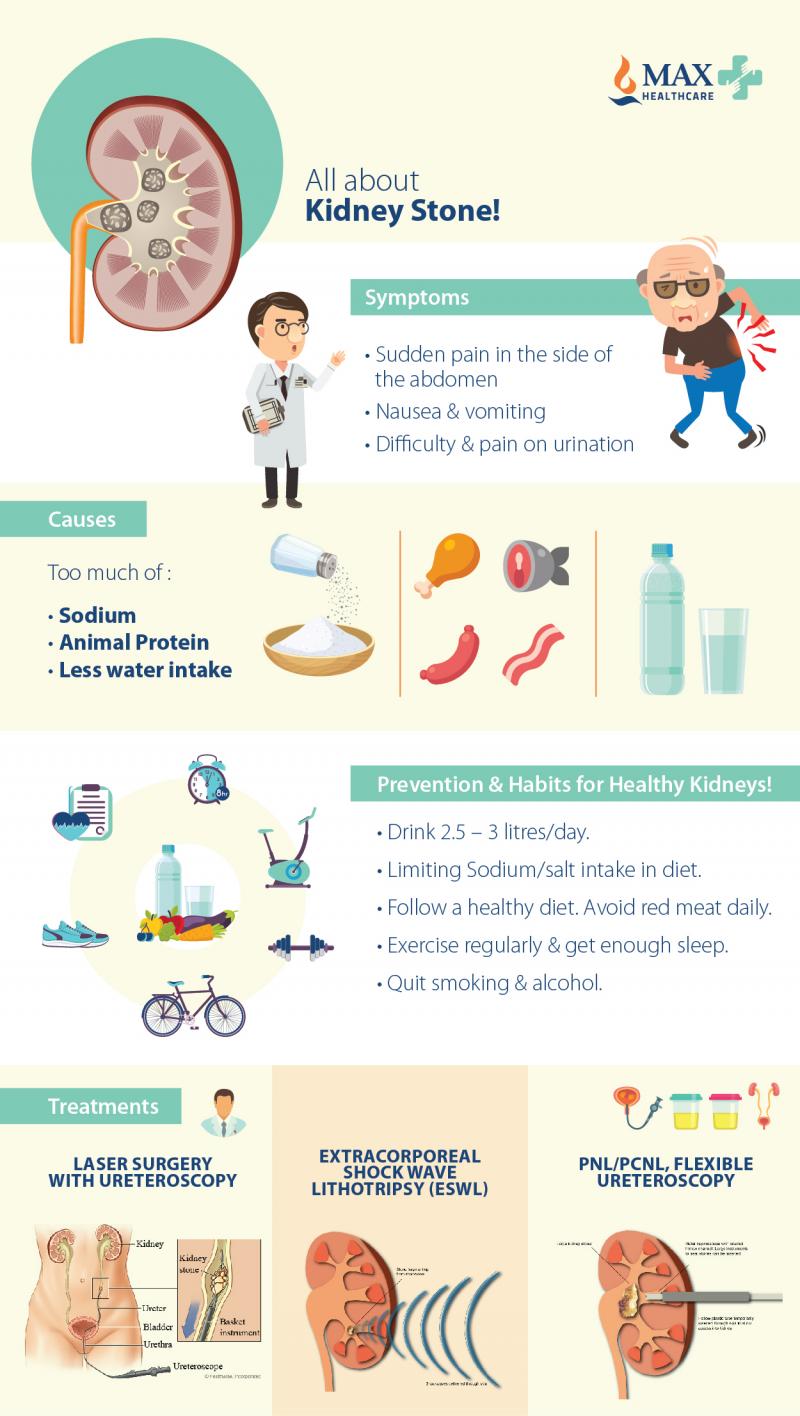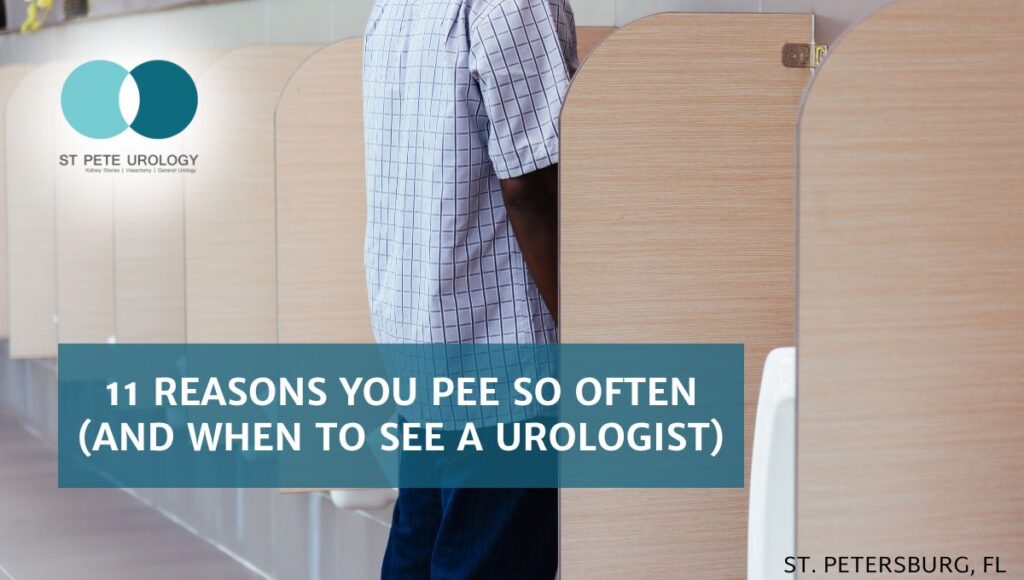
People sometimes may have kidney stones for several years without experiencing severe symptoms. The stones may pass out in urine with little pain and just a few mild-to-moderate symptoms. However, whether you have not had a kidney stone or only experienced a little pain when passing a stone, it is advisable to take precautionary steps to avoid more serious problems. For example, eating certain types of foods such as large amounts of lemons and oranges may cause kidney stones. But before eliminating various food items from your diet, you should consult a urologist. The urologist will conduct a proper evaluation of your current health status and provide clear guidance on which foods may cause kidney stones.
Common symptoms
A kidney stone often shows no symptoms until it has moved into the ureter. And when symptoms finally show, they commonly include:
- Sudden, severe pain in the groin or in the side of your abdomen
- A burning sensation during urination
- Pain and difficulty during urination
- A persistent urge to urinate
- Reduced quantity of urine excreted
- Nausea and vomiting
- Blood in urine
- Pus/white blood cells in urine
- Chills and fever (if there is an infection)
- Causes of Kidney Stones
Kidney stones typically vary in size, with some capable of growing as large as golf balls. The most common cause of the stones is lack of water in the body. The condition is often found in people who drink less than the recommended 8-10 glasses of water per day. When there is inadequate water in the body to dilute uric acid (a core component of urine), the urine will become more acidic and create a perfect environment for formation of the stones. Medical conditions like renal tubular acidosis, Dent’s disease, medullary sponge kidney, hyperparathyroidism, urinary tract infections and Crohn’s disease also increase the risk of kidney stones.
For prevention of kidney stones, you should:
- Drink 2.5-3 liters of water every day
- Reduce sodium or salt intake in your diet
- Follow a healthy diet and avoid red meat. Daily or frequent consumption of red meat may cause kidney stones.
- Exercise regularly and make sure to get enough sleep
- Quit smoking and avoid alcohol
- Treatment for kidney stones
The treatment is usually focused on managing the symptoms since passing a stone may be really painful. In the hospital, a urologist may choose:
- Rehydration via an intravenous tube, accompanied with anti-inflammatory medication. Narcotics may be used to reduce the pain of passing the stones while antiemetic medication may be given to stop nausea and vomiting.
- Extracorporeal shock wave lithotripsy (ESWL) may be performed by a urologist to break a kidney stone into small pieces to enable it to pass.
- Laser surgery with ureteroscopy may be performed for large stones located in areas that do not allow for lithotripsy.
- PNL/PCNL, flexible ureteroscopy, also may be considered by a urologist.
At St. Pete Urology, we offer many options and state-of-the-art facilities for successful treatment of kidney stones. For more information, visit the site, St Pete Urology.





